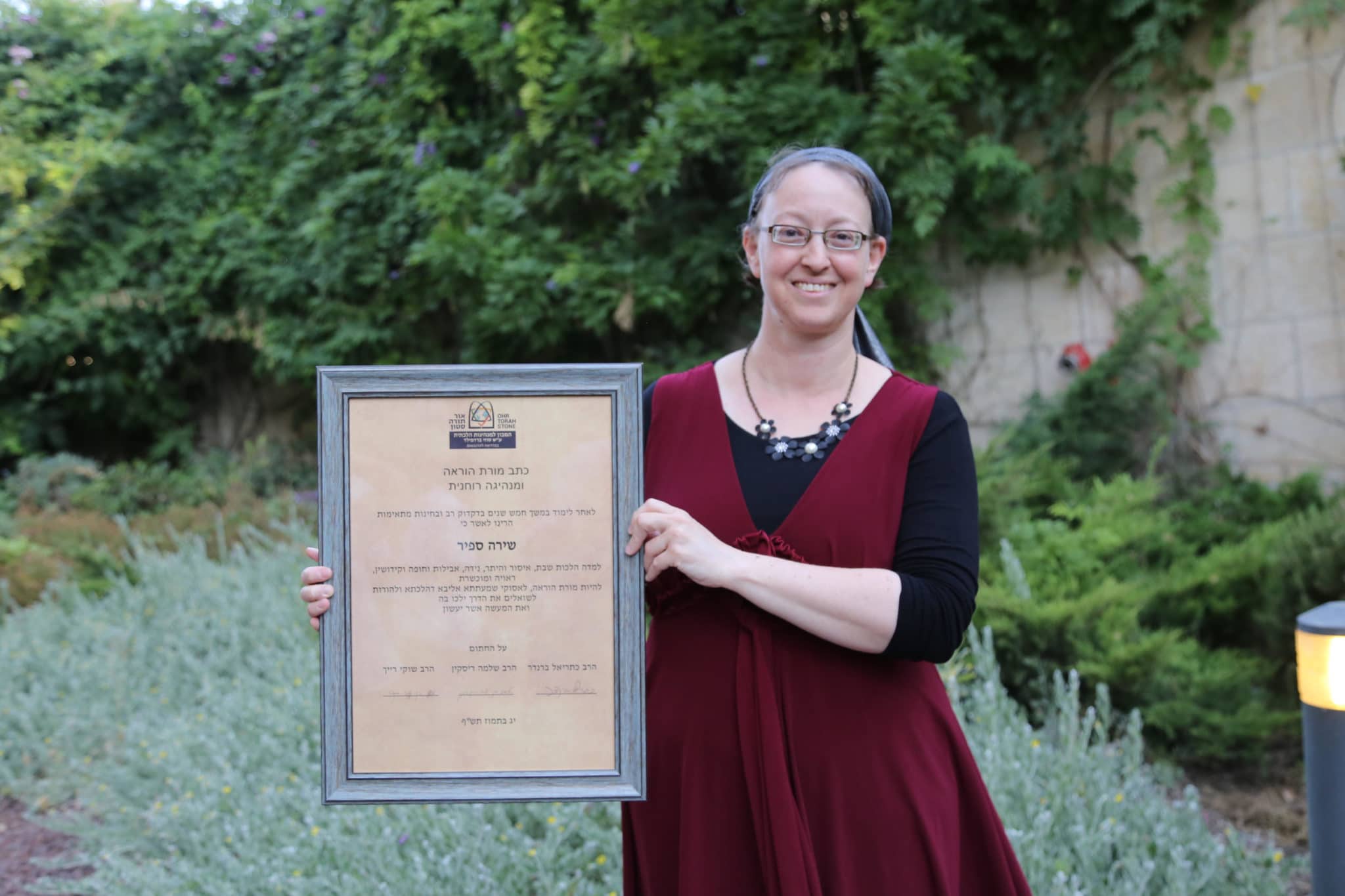
In a socially distanced ceremony in Jerusalem last month, Shira Sapir accepted her certificate as a Morat Hora’ah (authorized to provide direction in matters halachah, or Jewish law) and Spiritual Leader from Ohr Torah Stone’s Susi Bradfield Women’s Institute of Halachic Leadership. The honor came in the wake of a landmark decision by the attorney general that grants women’s Torah studies equal governmental recognition to those of men.
A mother of six from the religious Migdal Oz settlement in Gush Etzion, Sapir is the only the ninth woman in Israel to have successfully completed the five-year course. While she’s not yet fully comfortable with any of the titles (including that of Rabbanit), Sapir said the role of women at the forefront of halachah and community is of paramount importance. She points to public institutions, such as jails, that desperately need female leaders but added that every community could benefit from women at the helm. “There are people who say we want to replace men, or push them out, but that’s not it at all. We need to change the public consciousness. I think that on a fundamental level it’s correct that it should be a shared role, but every community is different and the community needs to want there to be a woman.”
There are people who say we want to replace men, or push them out, but that’s not it at all. We need to change the public consciousness.
Sapir’s family made aliyah from North Carolina when she was a baby. She recalled as a child asking her father halachic questions and looking up the answers with him in Jewish law books. These days, her children turn to her and pose halachic questions by jokingly prefacing them with, “Rabbi Mommy.”
“I connect deeply to the language of halachah. I feel like it’s a new language I acquired,” she said. “In the ‘dryness,’ in the details, I find the essence of Judaism.”
In addition to Shabbat, kashrut and family purity — the subjects traditionally mastered by men preparing to become rabbis — Sapir passed another exam on the laws of conversion. She has worked for more than a decade with converts. It was her sense of otherness, she said — growing up in an immigrant family with parents who were not born into Orthodoxy — that fostered a strong sense of identification with her students. “The question of Jewish identity is one we all grapple with,” she said. “Not just converts.”
Sapir recalled a discussion with her students about the tough questions addressed to God by King David in Psalms. She emphasized the value of asking questions in Judaism. She said that in Christianity, adherents are often encouraged not to ask and just to believe. At that point, one of her students interrupted and said, “No, in Christianity, if you ask questions, you end up here!”
The history of conversion law is a subject that fascinates Sapir and one she is hoping to research in her MA studies. Conversion has undergone seismic changes over the centuries. She said, “I’m looking to have a real impact on the discourse in the world of conversion in the State of Israel.”
Correction: A previous version of this article incorrectly stated that Sapir was the first woman to successfully complete the five-year course.






















 More news and opinions than at a Shabbat dinner, right in your inbox.
More news and opinions than at a Shabbat dinner, right in your inbox.